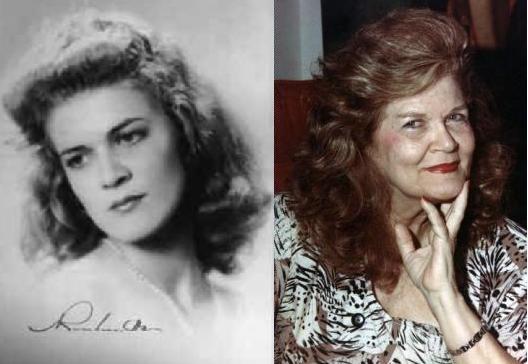4.1.3.3 The poetic work of Carilda Oliver Labra (1922-)

Carilda Oliver Labra, despite having been born in 1922 and not in 1924 as was erroneously assumed due to the data on her birth registration, belongs in spirit to the so-called generation of 50, her lyrics denote a style that from the symbiosis of literary currents finds a sui generis expression, generally around amorous matters in the area of fruitive contact, not circumscribed but tending towards the carnal from the point of view of the real presence of the lover over the idealizing vocation of other poets.
The fundamental lyrical sources Carilda drew from were neo-romanticism, colloquialism, and, to a large extent, the avant-garde, but not in any specific forms, but rather in terms of the casual use of vocabulary, without moving toward overt experimentation. In her works, we can appreciate a certain touch of “sentimental irony,” although more due to the spirit of the times than to direct influences from precursors of this movement, such as José Zacarías Tallet and Rubén Martínez Villena.
The essential theme of his poetry has undoubtedly been love, in this sense from a curious exteriorization of the intimate, sometimes with apparent childlike frivolity, but always a closer reading reveals the sentimental depth of his experiences, an authenticity that fits well with colloquial molds; this core area of his poetry was influenced by the work of José Ángel Buesa, without being tempted by populism, somewhat associated with the facile versality in which the bard incurred despite his undeniable gifts.
However, the theme acquires in the poet an erotic intensity unmatched in other eras and even rare today, especially in terms of the mastery with which she is able to convey the emotion of the body. In this regard, Virgilio López Lemus, in his prologue to the book “Error de magia,” writes:
“Carilda breaks the mold of the active-passive attitude of the love relationship and places herself at the center of activity, of the joyful expression of the charms of the human body. Her poetry is corporeal and focuses on the female body. It is not driven by any dose of mysticism, in which the soul rises above the “vile” body, which for her is anything but vile. As both object and subject of enjoyment, the body acquires with Carilda a dignity not always found in Cuban neo-romantic poetry written by men…”
Although the theme of love is central to Carilda’s work, social influences are also present, and at times she takes on a reflective tone that has attracted critical attention, as well as anchoring her in her context, a vindication of so-called poetry of circumstance, sometimes of the family and home. In this sense, her native Matanzas constitutes a hinted-at or explicit setting for her wanderings through life and love.
Her poetic work includes the collections “Lyric Prelude,” “South of My Throat,” “Memory of Fever,” “Verses of Love,” “You Are Tomorrow,” “Syllables and Time,” “Dust Disappears,” “The Illuminated Bones,” “A Man Has Been Lost,” “Calzada de Tirry 81,” “Promised to the Fire,” and “Magic Error,” among other publications and anthologies. In addition to her poetic vocation, she has worked as a lawyer in Matanzas, having obtained a PhD in Civil Law from the University of Havana. After the triumph of the Revolution, she also served as a secondary school teacher in the aforementioned city.








